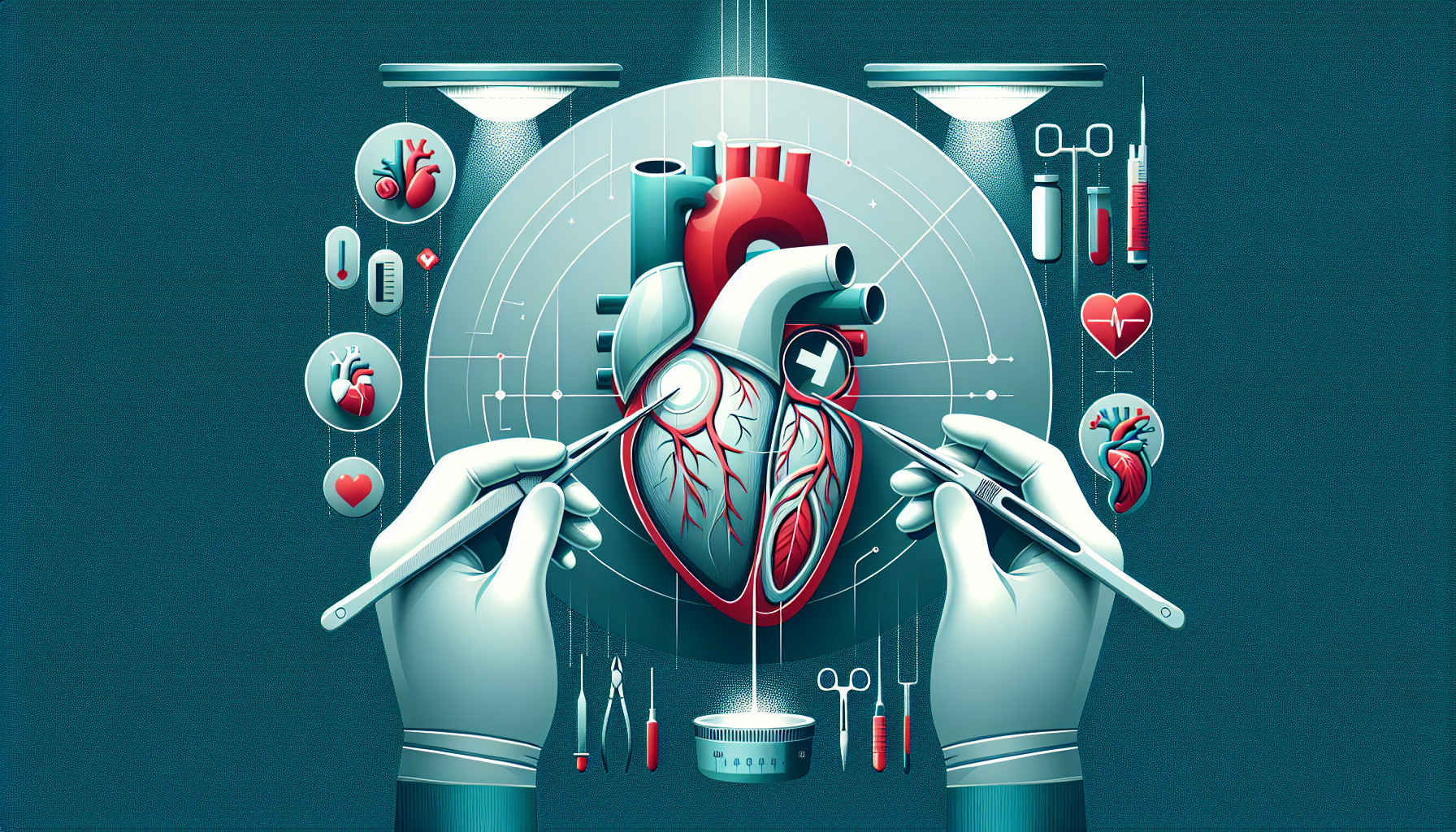Our Summary
This research paper discusses a rare case of a 26-year-old patient who had a serious heart infection caused by a bacterium called Rhizobium radiobacter. This infection affected three of his heart valves and caused septic shock, a severe reaction to bacteria or other germs in the body, leading to organ failure and other serious health problems. Initially, the patient was too sick to undergo surgery. However, after intensive care and special treatments to manage the septic shock and other complications, the patient’s condition stabilized.
This allowed the doctors to carry out a complex surgical procedure, where they replaced all three infected heart valves, repaired an abscess (a pocket of pus), removed a heart aneurysm (an abnormal bulge in the heart wall), and closed a hole in the wall separating the two lower heart chambers.
The patient recovered well after the surgery, with both sides of his heart showing significant improvement six months later. The findings from this case highlight that even patients in critical condition with septic shock can still benefit from complex heart surgeries after intensive care. This case also demonstrates that Rhizobium radiobacter can cause serious heart infections, and the importance of using a specific technique during heart surgery to minimize damage to the heart muscle.
FAQs
- What kind of bacterium caused the severe heart infection in the patient?
- What were the complications of the heart infection, and how were they managed before surgery?
- How did the patient’s condition improve after the complex heart surgery?
Doctor’s Tip
A doctor might advise a patient undergoing valve replacement surgery to follow a healthy lifestyle, including regular exercise, a balanced diet, and avoiding smoking and excessive alcohol consumption. It is also important for the patient to attend follow-up appointments and take prescribed medications as directed to ensure optimal recovery and long-term success of the valve replacement. Additionally, the patient should be aware of the signs and symptoms of infection, such as fever, chest pain, and shortness of breath, and report any unusual symptoms to their healthcare provider promptly.
Suitable For
Patients who are typically recommended for valve replacement include those with severe valve disease, such as aortic stenosis (narrowing of the aortic valve), mitral regurgitation (leaking of the mitral valve), or infective endocarditis (infection of the heart valves). These conditions can lead to symptoms such as chest pain, shortness of breath, fatigue, and heart failure.
In cases where medication or other treatments are not effective, valve replacement may be necessary to improve the patient’s quality of life and prevent further complications. Patients who are younger and have a longer life expectancy may be candidates for valve replacement to improve their long-term outcomes.
Additionally, patients with certain risk factors, such as a history of rheumatic fever, congenital heart defects, or previous valve replacement surgeries, may also be recommended for valve replacement. It is important for patients to discuss their individual health status and treatment options with their healthcare provider to determine the most appropriate course of action for their specific condition.
Timeline
Before valve replacement:
- Patient develops a serious heart infection caused by a bacterium.
- Infection affects multiple heart valves, leading to septic shock and organ failure.
- Patient undergoes intensive care and special treatments to stabilize condition.
- Patient is deemed too sick to undergo surgery initially.
After valve replacement:
- Patient’s condition stabilizes after intensive care and treatments.
- Complex surgical procedure is carried out to replace infected heart valves, repair abscess, remove heart aneurysm, and close hole in heart wall.
- Patient recovers well after surgery.
- Both sides of patient’s heart show significant improvement six months later.
- Findings highlight the potential benefits of complex heart surgeries for patients in critical condition with septic shock.
- Importance of using specific techniques during heart surgery to minimize damage to heart muscle is emphasized.
What to Ask Your Doctor
- What are the different types of heart valve replacements available and which one would be most suitable for my condition?
- What are the risks and potential complications associated with heart valve replacement surgery?
- How long is the recovery period after heart valve replacement surgery and what kind of follow-up care will I need?
- Will I need to take medication after the surgery, and if so, what are the potential side effects?
- What lifestyle changes or restrictions will I need to follow after the surgery?
- How frequently will I need to have follow-up appointments and tests to monitor the function of the new heart valve?
- Are there any specific activities or exercises that I should avoid after the surgery?
- What are the signs of complications that I should watch out for after the surgery?
- Are there any dietary restrictions I should follow after the surgery?
- How successful is heart valve replacement surgery in improving the overall quality of life and longevity of patients with heart valve disease?
Reference
Authors: Iosifescu AG, Marinică I, Popescu A, Timișescu AT, Antohi EL, Iliescu VA. Journal: Int J Surg Case Rep. 2022 Aug;97:107401. doi: 10.1016/j.ijscr.2022.107401. Epub 2022 Jul 13. PMID: 35878548
